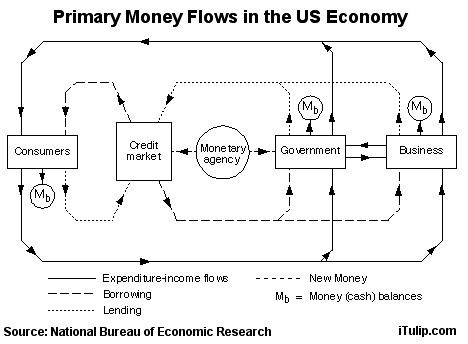I believe this explanation for the surge in the dollar falls under 5).
Dollar Surges Amid Hustle For Supplies Overseas
Oct. 7, 2008 (WSJ)
The dollar is in demand because many foreign banks engaged in short-term borrowing in dollars to fund various activities in recent years. Now, one normal channel for getting those funds or rolling over such debt -- borrowing from U.S.-based banks -- is gummed up, as banks are leery of lending to one another.
At the same time, banks world-wide are also looking to reduce their overall borrowing as part of a race to clean up their balance sheets. Where that borrowing was in dollars, they need dollars in order to repay it.
"There is a pyramid of leverage" in the financial system built up over years, says Mark Astley, CEO of Millennium Global Investments, a U.K. currency manager with $15 billion in assets. "This isn't going to be over in a couple of weeks."
The global demand for dollars pushed the U.S. Federal Reserve to announce a major expansion of its "swap" lines with other central banks, which allow them to provide liquidity in dollars to their local commercial banks. The Fed now has arrangements with nine other central banks, which together provide access to a total of $620 billion.
Still, that hasn't been enough to ease the squeeze. Some of the demand for dollars has spilled over into the currency markets. There, participants can buy dollars outright, or use derivatives known as currency swaps to exchange one currency for another at two different points in time.
Some investors say the appetite for dollars is akin to the demand for the yen. The yen surged against the dollar and the euro Monday; late in New York one dollar bought 101.61 yen, down sharply from 105.14 Friday.
The yen's ability to thrive stems from the fact that in better times, investors borrow in yen to take advantage of Japan's ultralow interest rates. But when volatility rises or investors need to cover losses elsewhere, they undo these maneuvers -- known as carry trades -- and buy back yen, boosting Japan's currency.
Meanwhile, by borrowing so much in dollars, foreign banks may have created "the biggest carry trade of all time," says Hans-Guenter Redeker, a currency strategist at BNP Paribas in London.
What will happen when this temporary dollar carry trade reverses? When?
The dollar will weaken rapidly. When? The de-leveraging of the "pyramid of leverage" will take from two to six months but not likely more than that.
...
http://www.itulip.com/forums/showthread ... #post52818



